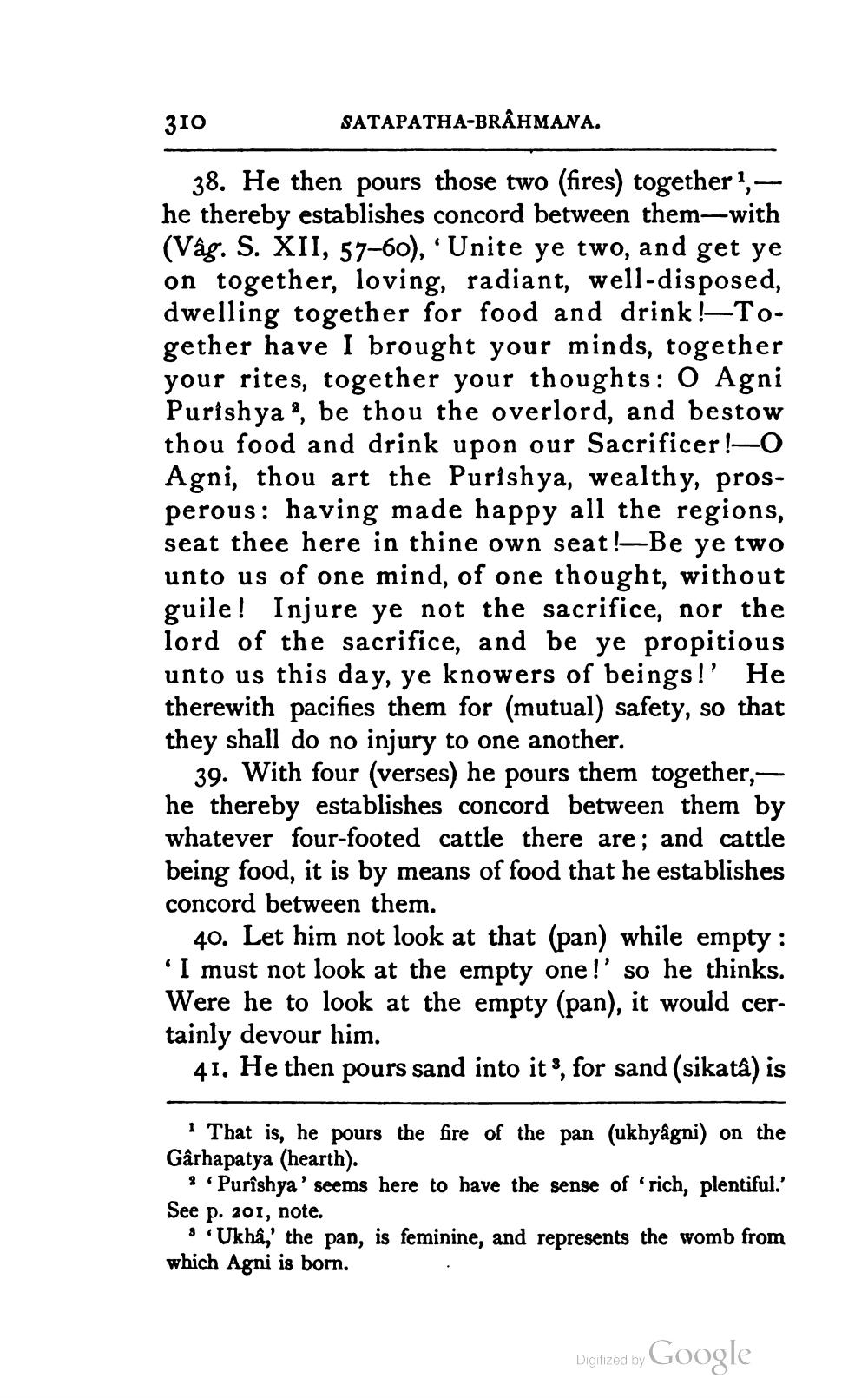________________
310
SATAPATHA-BRAHMANA.
38. He then pours those two (fires) together ?, - he thereby establishes concord between them with (Vág. S. XII, 57-60), 'Unite ye two, and get ye on together, loving, radiant, well-disposed, dwelling together for food and drink !—Together have I brought your minds, together your rites, together your thoughts: 0 Agni Purishya, be thou the overlord, and bestow thou food and drink upon our Sacrificer!-O Agni, thou art the Purishya, wealthy, prosperous: having made happy all the regions, seat thee here in thine own seat!-Be ye two unto us of one mind, of one thought, without guile! Injure ye not the sacrifice, nor the lord of the sacrifice, and be ye propitious unto us this day, ye knowers of beings!' He therewith pacifies them for (mutual) safety, so that they shall do no injury to one another.
39. With four (verses) he pours them together, he thereby establishes concord between them by whatever four-footed cattle there are; and cattle being food, it is by means of food that he establishes concord between them.
40. Let him not look at that (pan) while empty : 'I must not look at the empty one!' so he thinks. Were he to look at the empty (pan), it would certainly devour him.
41. He then pours sand into it S, for sand (sikatà) is
"That is, he pours the fire of the pan (ukhyâgni) on the Gârhapatya (hearth).
# Purishya' seems here to have the sense of 'rich, plentiful.' See p. 201, note.
8.Ukha,' the pan, is feminine, and represents the womb from which Agni is born.
Digitized by Google




